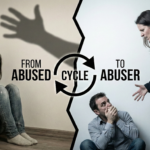For many in the recovery world holidays can be a rough period. Now, add going back home to a family gathering and that rough period can get even rougher. Here are some tips to make the holiday gatherings a little easier on your recovery, or better yet, on your sanity.
Movies have been made about family holiday gatherings, and for many, it can be a challenging time. But for the purposes of this blog, let us stick with those in recovery. I have recently heard therapists speak about family toxicity and how to navigate it. But it needs to be a little more specific. There are toxic family members and then there are dysfunctional ones; know the difference between them.
Toxic family members are the ones that simply annoy others with their constant negativity, goading, sarcasm, and plain meanness. Their behaviors often trigger others into arguments or worse. They may also be constantly provoking those around them to engage in negativity. If possible, toxic people should be avoided, but that may not be possible if they are in the family system and around for the holidays. You either tolerate them by preparing yourselves for it, or simply avoid the family gathering.
Dysfunctional family members on the other hand may just be uncomfortable to be around. They may lack social skills, be prejudicial, and talk about topics that can be depressing, anxiety provoking, or politically incorrect. They may project their own stuff on those around them, be anxious, or even depressing. Whether our dysfunctional family members are tolerable will depend on where you are in your self-growth and sobriety.
When you are thinking about your family and whether some members, or all, fall into the category of toxic or dysfunctional, remember a toxic member will always be dysfunctional, but a dysfunctional member does not necessarily have to be toxic. You need to know the difference. Toxic members will always be a problem for you and are a problem for everyone. Dysfunctional members can be tolerated if you adjust your expectations of them.
When preparing for the holiday visit, know that family members who are dysfunctional will continue to be dysfunctional. Self-talk yourself into a mindset that will not try to fix them or project your newfound knowledge on to them. Do not engage in conversations that you know will end in an argument or a debate that will only trigger further arguments or bad feelings. The newly sober person will be best to leave such topics be and just try to focus on the holiday events.
Now that I have differentiated between toxic and dysfunctional people, you need to prepare yourselves by doing a self-check on whether you will attend the family holiday. That self-check should include where you are in your sobriety and whether this is the first holiday home after recovery or whether you have attended previous holidays sober and had to deal with toxic or dysfunctional family members.
If this is your first time returning to the family gathering after becoming sober, or you have decided to take on the toxic family, you will need to prepare for all the possibilities. I am a believer that you must play out all the scenarios you can imagine to be prepared. It means expecting the worst and hoping for the best.
So, how do you survive with toxic people? Simple, do not engage. That is part of it, but it is not always possible. If they begin to provoke an argument, you best just agree with them. If agreeing with them initiates another provocation, agree again, and again, and again. Trust me, they will move on to another member. It takes two to argue. DO NOT ENGAGE!
Toxic people need air and fuel to keep the flame going. If you do not offer anything other than an agreement, they may try to tease you or say something like “glad to see you came to your senses,” or “I’m glad you now see the light,” or something to initiate a response. DO NOT ENGAGE!
Non-engagement does not mean you should allow toxic or dysfunctional family members to demeane or abuse you. If going home to an abusive environment is your only option, then do not go. It just is not worth risking your sobriety.
Additional challenges/triggers for newly sober people may be seeing old friends, significant others, and familiar areas that invoke memories of using. My best advice would be to keep engagements to a minimum, or not at all. You are going home to see your family, not your neighborhood, or old acquaintances. Do not fool yourself into believing you can manage it. You probably cannot! It is better to be safe than sorry.
For those who have years of recovery under your belt, you really do not need too much advice other than keeping up the excellent work. However, if you are still having difficulty with toxic or dysfunctional family members then refer to the previously mentioned actions.
In summary, the holidays, in general, can be a tough time for those in recovery, and going home to a toxic or dysfunctional family gathering can be rougher. Just remember, it takes two people to have an argument, so do not bite when baited. Agree, agree, agree with those trying to goad you into a debate. Do not be offering advice or projecting your sobriety onto others. This is your journey, not theirs. Stick to your pre-plan and have a safe and happy holiday!
Mind, Body, Spirit…Balance!
Vinnie Strumolo






